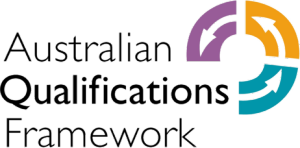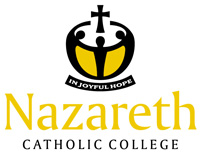
Education in Australia encompasses the sectors of early childhood education (preschool) and primary education, followed by secondary education, and finally tertiary education, which includes higher education and vocational education. Regulation and funding of education is primarily the responsibility of the States and territories; however, the Australian Government also plays a funding role.
K–12, from kindergarten to 12th grade, is an English language expression that indicates the range of years of publicly supported primary and secondary education found in the United States and Canada, which is similar to publicly supported school grades before tertiary education in several other countries, such as Afghanistan, Australia, China, Ecuador, Egypt, India, Iran, the Philippines, South Korea, and Turkey. K–12 refers to the American system which affords authority to local intersectional "districts" which may be specific to a municipality, county, or several regions, depending on population and proximity.

A comprehensive school is a secondary school for pupils aged 11–16 or 11–18, that does not select its intake on the basis of academic achievement or aptitude, in contrast to a selective school system where admission is restricted on the basis of selection criteria, usually academic performance. The term is commonly used in relation to England and Wales, where comprehensive schools were introduced as state schools on an experimental basis in the 1940s and became more widespread from 1965.
A national curriculum is a common programme of study in schools that is designed to ensure nationwide uniformity of content and standards in education. It is usually legislated by the national government, possibly in consultation with state or other regional authorities.

The Australian Qualifications Framework (AQF) specifies the standards for educational qualifications in Australia. It is administered nationally by the Australian Government's Department of Industry, with oversight from the States and Territories, through the Standing Council of Tertiary Education Skills and Employment. While the AQF specifies the standards, education and training organisations are authorised by accrediting authorities to issue a qualification.

Canberra Grammar School is a co-educational, independent, day and boarding school located in Red Hill, a suburb of Canberra, the capital of Australia.
The Australian International School Malaysia (AISM) is a private international school located in The MINES Resort City, Seri Kembangan, Selangor, Malaysia.
Norwood International High School (NIHS) is a single-campus, co-educational, public high school located in the eastern suburbs of Adelaide, South Australia.

National Council of Educational Research and Training (NCERT) is an autonomous organisation of Ministry of Education, the Government of India. Established in 1961, it is a literary, scientific and charitable Society under the Societies Registration Act. Its headquarters are located at Sri Aurbindo Marg in New Delhi. Dr. Dinesh Prasad Saklani is the director of NCERT since 2022.

The Victorian Curriculum and Assessment Authority (VCAA) is a statutory authority of the Victoria State Government responsible for the provision of curriculum and assessment programs for students in Victoria, Australia. The VCAA is primarily accountable to the Victorian Minister for Education. It is also responsible to the Minister for Training and Skills and the Minister for Families and Children in relation to sections of Part 2.5 of the Education and Training Reform Act 2006.

Karawatha is an outer southern suburb in the City of Brisbane, Queensland, Australia. In the 2021 census, Karawatha had a population of 337 people.

The Australian International School (AIS), located in Singapore, is a co-educational international school that offers a combination of the International Baccalaureate (IB), International General Certificate of Secondary Education (IGCSE), and Australian curricula. The school provides two diploma options for senior students: the International Baccalaureate Diploma Programme (IBDP) and the Higher School Certificate (HSC). The school caters to students from 18 months old through to Year 12.
The South Shore Charter Public School (SSCPS) is a public charter school located in Norwell, Massachusetts, United States. SSCPS serves students from kindergarten through 12th grade. The school's student population, as of the 2022–2023 academic school year is 1,009 students.

Education in Western Australia consists of public and private schools in the state of Western Australia, including public and private universities and TAFE colleges. Public school education is supervised by the Department of Education, which forms part of the Government of Western Australia. The School Curriculum and Standards Authority is an independent statutory authority responsible for developing a curriculum and associated standards in all schools, and for ensuring standards of student achievement, and for the assessment and certification according to those standards.
Cardijn College is a Roman Catholic secondary co-educational school located in the Southern Vales area approximately 25 kilometres (16 mi) south of the Adelaide city centre in South Australia. Established in 1984, it is a diocesan school with a student population of 1,300 in 2020. It is co-owned with Marcellin Technical College, which acts as the technical campus for Cardijn College.

The Nazareth Catholic College is an independent Roman Catholic co-educational primary and secondary day school located across four campuses in suburban Adelaide: a primary school campus in Findon, a middle school campus (7-9) in Flinders Park, a Year 10 campus in Underdale, and a senior school campus (11-12) in Kidman Park,in South Australia, Australia
Schools in South Australia may refer to:
The Australian Curriculum is a national curriculum for all primary and secondary schools in Australia under progressive development, review, and implementation. The curriculum is developed and reviewed by the Australian Curriculum, Assessment and Reporting Authority, an independent statutory body. Since 2014 all states and territories in Australia have begun implementing aspects of the Foundation to Year 10 part of the curriculum.

Ellenbrook Christian College is a Christian non-denominational, co-educational school catering for students from pre-kindergarten to Year 12. Commencing in 2001, the College was built in the satellite town of Ellenbrook in the north-eastern suburbs of Perth, Western Australia. The College is a member of the Swan Christian Education Association Inc.
Unity Grammar is an independent Islamic co-educational primary and secondary day school. It is located in Austral, New South Wales, a suburb in south-western Sydney, Australia. The school educates students from Kindergarten to Year 12.










